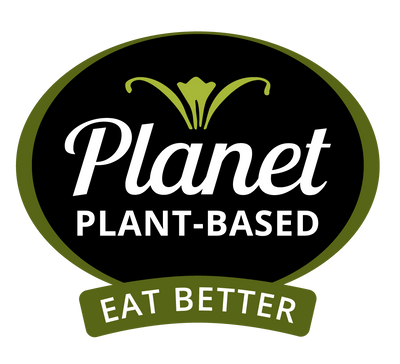Sustainability
OUR COMMITMENT
We know that the less meat we eat, the less damage we do to our environment so of course we want to make that easier for everyone. But running a business like Planet Plant-Based also has implications for the planet, and we want you to know that we couldn’t take that responsibility more seriously.
Sustainability can be complex but our pledge for the planet is a simple one:
we never stop trying to find better ways to protect the environment.
Fortunately technologies are improving all the time, so we will continue to innovate and evolve. You’ll always find our most up to date information on our commitment to sustainability here.
FREE PLANT-BASED RECIPES
At Planet Plant-Based we love sharing recipes that can be enjoyed with or without our products. One of our main reasons for doing so is to help protect the environment, because eating more vegetables and less meat is one of the most effective changes individuals can make to help fight climate change.
The meat and dairy industry is one of the largest global contributors to greenhouse gas emissions, significantly worse than planes, cars and trucks combined. It is one of the main drivers behind deforestation (and in times of global warming we need more not fewer trees to help clean the air from CO₂) and it uses vast amounts of fresh water when many parts of the world are suffering extreme drought.
ORGANIC INGREDIENTS
Planet Plant-Based products consist of only organically farmed ingredients. Organic farming is not only better for our health, it also protects the soil in which the food is grown and it enhances biodiversity.
FOOD PACKAGING
Our number one consideration when choosing how we package our food is food safety. The packages we choose need to keep the food safe throughout its shelf life. This is important for health reasons but also for environmental reasons as it helps to minimize food waste.
Sadly, biodegradable bags which can be used for fast food are not a viable option for products with a longer shelf life. Currently our options are plastic, aluminium or glass. For safety reasons food cannot be packaged in re-used materials.
The general principle we follow is to not mix materials (for example bags which glue paper and plastic together) so that consumers can more easily recycle the packaging into the correct bins.
Currently there is lots of active research and development in the field of packaging and we are hopeful that re-using materials in the food industry will become an option soon.
How to recycle our packaging
Pasta: recycle the plastic bag as plastic and the paper box as paper.
Nut Butters, Tahini and Coconut Aminos: wash out jar and recycle as glass. Recycle the lid protection strip as plastic. The lid can be recycled as metal and the aluminium foil layer inside the lid can be recycled as aluminium.
We have experimented with removing the plastic strip and foil layer but have realised we need both to keep the jars, labels and product safe and clean.
Granola: The bag should be recycled as plastic. For recyclability reasons we have chosen this particular bag because it is made from one kind of recyclable plastic throughout including the zipper.
Since printing our first batch of granola bags we have learnt that dark plastic can be difficult for recycling plant technology to sort correctly. Therefore we are changing the packaging for our granola to make recycling errors less likely. You will see new bags in 2020 once current stocks have been used.
Webshop packaging: Box, filler and tape can all be recycled as paper and card. We don’t use any plastic in boxes, tape or protection materials, the sizzle pack filler is made from recycled paper.
TRANSPORTATION
All shipments from our webshop are carbon neutralized through DHL. We always pack pallets from our production facilities as effectively as we can for space and weight to reduce our carbon footprint. None of our products is ever transported by airplane.



